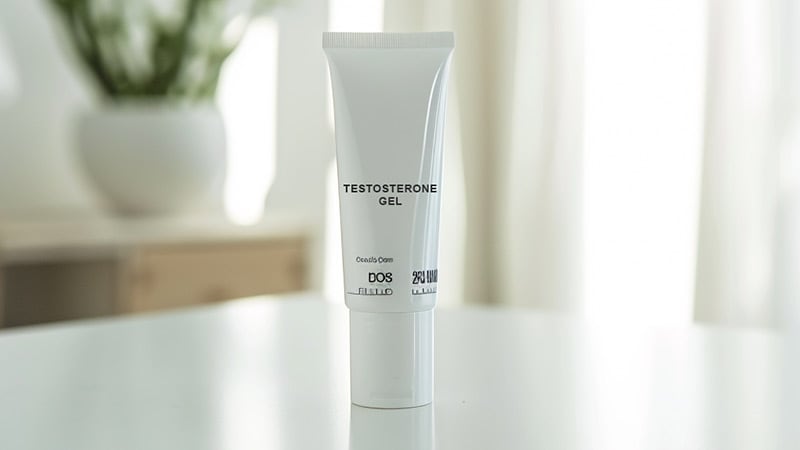Challenges and Benefits of Testosterone Replacement Therapy in France
Core Concepts
Effective testosterone replacement therapy can significantly improve the quality of life and health of patients with low testosterone levels, despite existing misconceptions and challenges.
Abstract
Introduction
- Treating low testosterone levels in France poses challenges due to underdiagnosis, doctor reluctance, and patient misconceptions.
- Dr. Eric Huygue emphasizes the benefits of replacement therapy for improving quality of life and health.
Testosterone Levels
- Symptoms of testosterone deficiency affect men over 40, impacting sexual, physical, and mental health.
- Only 20% of symptomatic men in France receive replacement therapy due to underdiagnosis and reluctance.
- Certain conditions and medications can lead to low testosterone levels.
Diagnosis and Treatment
- Diagnosis should be based on free or bioavailable testosterone levels, not total testosterone.
- Reference ranges based on age group contribute to underdiagnosis.
- Doctors may be hesitant to prescribe replacement therapy due to perceived risks, especially related to prostate cancer.
Prostate Cancer Concerns
- Urologists are cautious about prescribing testosterone to patients with a history of prostate cancer.
- Studies show that testosterone replacement therapy is safe post-prostatectomy or radiotherapy.
- Testosterone does not increase the risk of prostate cancer recurrence.
Cardiovascular Benefits
- Concerns about cardiovascular risks associated with testosterone have been debated.
- European studies suggest cardiovascular benefits of testosterone replacement therapy.
- Patients often have misconceptions about testosterone treatment, leading to reluctance.
Supply Chain Issues
- Breaks in the supply chain of Androtardyl complicate the prescription and use of testosterone replacement therapy in France.
- Different formulations of testosterone replacement therapies are available in the market.
Customize Summary
Rewrite with AI
Generate Citations
Translate Source
To Another Language
Generate MindMap
from source content
Visit Source
www.medscape.com
Testosterone Supplements: Overcoming Current Misconceptions
Stats
About 20% of patients with symptomatic low testosterone levels are treated for the deficiency.
There are an estimated 340,000 men with symptomatic testosterone deficiency in France.
77% of urologists refer to reference ranges for patients of the same age.
40% of urologists think that testosterone is contraindicated in patients with a history of prostate cancer.
Quotes
"Treatment for low testosterone is effective and risk-free. It improves a patient's quality of life and general health." - Dr. Eric Huygue
"This is a time of many surprising discoveries concerning the link between the prostate and testosterone." - Dr. Eric Huygue
Key Insights Distilled From
by Vincent Rich... at www.medscape.com 01-18-2024
https://www.medscape.com/viewarticle/testosterone-supplements-overcoming-current-misconceptions-2024a10001gx
Deeper Inquiries
How can communication efforts be improved to raise awareness about the benefits of testosterone replacement therapy?
To enhance communication efforts and raise awareness about the benefits of testosterone replacement therapy, a multi-faceted approach is necessary. Firstly, healthcare professionals, including urologists and general practitioners, should engage in continuous education and training to stay updated on the latest research and recommendations regarding testosterone deficiency and replacement therapy. This will enable them to effectively communicate the benefits and safety of treatment to patients.
Secondly, targeted educational campaigns should be launched to reach both healthcare providers and the general public. These campaigns can utilize various channels such as social media, informational websites, brochures in clinics, and public seminars to disseminate accurate information about testosterone deficiency, its symptoms, and the benefits of treatment. Collaborating with patient advocacy groups and professional medical associations can also help in amplifying the message.
Moreover, involving patients in their treatment decisions through shared decision-making can improve understanding and acceptance of testosterone replacement therapy. Providing clear and accessible information about the risks and benefits, as well as addressing any concerns or misconceptions, can empower patients to make informed choices regarding their health.
How can patient education be enhanced to address misconceptions about testosterone treatment?
Patient education plays a crucial role in addressing misconceptions about testosterone treatment and improving acceptance of therapy. To enhance patient education, healthcare providers should prioritize clear and open communication with patients. This includes taking the time to explain the reasons for recommending testosterone replacement therapy, discussing potential benefits, and addressing any concerns or misconceptions that patients may have.
Using visual aids, such as diagrams or videos, can help simplify complex information and improve patient understanding. Additionally, providing written materials or online resources that explain the basics of testosterone deficiency, the role of testosterone in the body, and the benefits of treatment can serve as valuable educational tools for patients.
Furthermore, healthcare providers should encourage patients to ask questions and actively participate in their treatment decisions. By fostering a collaborative and supportive relationship with patients, providers can help dispel myths and misconceptions about testosterone treatment and empower patients to take charge of their health.
What are the potential implications of underdiagnosis of low testosterone levels in men?
The underdiagnosis of low testosterone levels in men can have significant implications for both individual health outcomes and public health. From an individual perspective, untreated testosterone deficiency can lead to a range of symptoms and complications, including sexual dysfunction, fatigue, muscle loss, and mood disorders. These symptoms can significantly impact a person's quality of life and overall well-being.
Moreover, untreated low testosterone levels have been associated with an increased risk of developing chronic conditions such as osteoporosis, cardiovascular disease, and metabolic disorders. By failing to diagnose and treat testosterone deficiency promptly, individuals may be at a higher risk of experiencing these long-term health consequences.
On a broader scale, the underdiagnosis of low testosterone levels can strain healthcare systems and lead to increased healthcare costs. Undiagnosed and untreated testosterone deficiency may result in more frequent doctor visits, hospitalizations, and the need for additional medical interventions to manage related health issues. By improving the diagnosis and treatment of low testosterone levels, healthcare systems can potentially reduce the burden of disease and improve overall population health.
0
